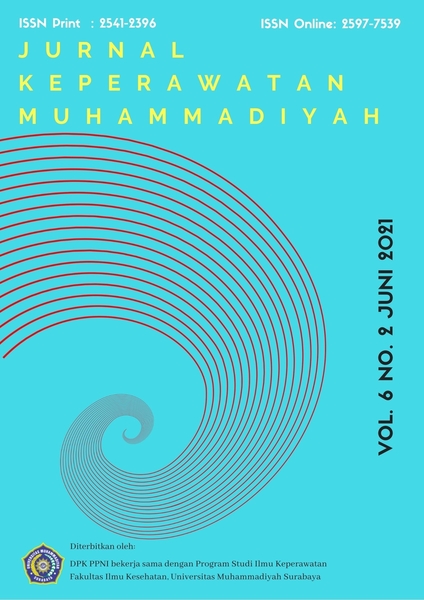Analisis Lingkungan Kerja Terhadap Kinerja Program Penanggulangan Tuberkulosis
DOI:
https://doi.org/10.30651/jkm.v6i2.8306Keywords:
Work environtment, Performance, Tubercullosis ProgrameAbstract
Work environment is the most important part in improving the performance of employees in an organization. a good work environment is closely related to effective performance.
Â
Objective: Â Â Analyze the work environment on the performance of the tuberculosis control programÂ
Methods:   This type of research is a study that uses an observational approach with a cross-sectional research design and a sampling technique using probability sampling. The respondents used were the executors of the tuberculosis control program at the Surabaya City Health Center as many as 28 teams. Results:  The results of this study provide information that there is an influence between the work environment and the performance of the tuberculosis control program. Based on the results of this study, it can be explained that the work environment also has an important role to be able to help the tuberculosis control program management team to achieve better performance targets.Â
Conclusion: Â The work environment affects the performance of tuberculosis control program officers at the Surabaya City Health Center.References
Ajayi, Isaac. (2011). Work Environment As Correlate Of Academic Staff Job Performance In South West Nigerian Universities . European Journal of Educational Studies.
Alex S. Nitisemito. (1992). Manajemen dan Sumber Daya Manusia, BPFE UGM, Yogyakarta.
Ardiansyah, A.A., (2015). Hubungan Kesadaran Sosial dan Keterampilan Sosial Dengan Kinerja Bidan Dalam Pemberian Tablet FE Pada Ibu Hamil di Puskesmas Kota Surabaya. Tesis. Surabaya: Universitas Airlangga.
Dayo Akintayo. (2012). Working environment, workers’ morale and perceived productivity in industrial organizations in Nigeria.Education Research Journal Vol. 2(3) pp. 87-93.
Dinas Kesehatan Provinsi Jawa Timur. Profil Kesehatan Provinsi Jawa Timur Tahun 2014. Surabaya: Dinkes Provinsi Jawa Timur; 2015
Fatri Bakri, Henni Kumaladewi Hengky & Fitriani Umar. (2021). Pemetaan Faktor Risiko Kejadian Tuberkulosis di Kota ParePare : Vol.4 No. 2, Mei 2021: 266-278
Gibson, James L., John M. Ivancevich, James H. Donnelly Jr., and Robert Konopaske. 2003. Organization: Nehavior, Structure, and Processes, 11th Ed. New York: McGraw-Hill.
Kopelman, Richard E. (1986) Managing Productivity in Organization; a Practical, People – Oriented Perspective; McGraw – Hill Book, Co, Singapore.
Notoatmodjo, Soekidjo. (2008). Metodologi Penelitian Kesehatan. Edisi revisi. Jakarta: PT. Rineka Cipta.
Rabia Imran, Afsheen Fatima, Arshad Zaheer, Imran Yousaf and Iram Batool. (2012). How to Boost Employee Performance: Investigating the Influence of Transformational Leadership and Work Environment in a Pakistani Perspective. Middle-East Journal of Scientific Research.
Rivai, Veithzal dan Sagala, Ella Jauvani. (2011). Manajemen Sumber Daya Manusia untuk Perusahaan dari Teori ke Praktik. Jakarta: PT Raja Grafindo
Shahzad, K., sarmad, M., Abbas, M. & Khan, M.A. (2011). Impact of Emotional Intelligence (EI) on Employee's Performance in Telcom Sector of Pakistan. African Journal of Business Managemnent, 5(4), pp.1225-31.
World Health Organization. Global tuberculosis report. (2016). Geneva: WHO; 2016
Downloads
Published
Issue
Section
License
- Penulis tetap memegang hak atas karyanya dan memberikan hak publikasi pertama kepada jurnal ini yang secara simultan karya tersebut dilisensikan di bawah:Â Creative Commons Attribution-ShareAlike 4.0 International (CC BY-SA 4.0)













